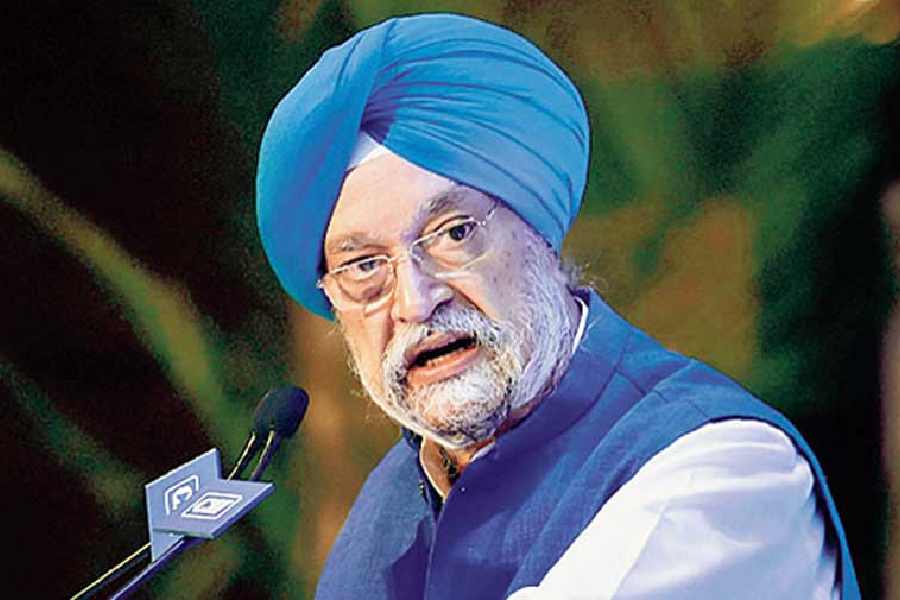The price of domestic cooking gas LPG at Rs 603 for a 14.2 kilogramme cylinder for beneficiaries under Pradhan Mantri Ujjwala Yojana (PMUY) is the cheapest in India when compared to rates in neighbouring countries, Petroleum Minister Hardeep Singh Puri said in the Rajya Sabha on Monday.
The minister, during the Question Hour in the Upper House, said India imports 60 per cent of its LPG requirement. Despite volatile and high global prices of LPG, the government absorbed it and kept the prices lower for the Ujjwala beneficiaries.
"Ujjwala cylinders are available at Rs 603. It costs Rs 1,059.46 in Pakistan, Rs 1,033.35 in Sri Lanka and at Rs 1,198.56 in Nepal. We are providing LPG cylinders at 50 per cent of the price. ...We have absorbed the global price increase and that's why cylinders are cheapest in India," he said.
The LPG price in Saudi Arabia has increased from USD 415 per tonne to USD 700-odd per tonne in two years, but the government has absorbed the rise in rates, he said.
The minister said that the consumption under PMUY has gone up to 2.8 cylinders per household annually now. The number of connections under the scheme has also increased to 9.6 crore and utilization has increased.
Responding to a query on the number of lives saved due to implementation of the PMUY, Puri said shifting from traditional firewood, kerosene and coal to a cleaner gas medium has significant health benefits, especially for women. However, it is difficult to quantify precisely.
He said the total number of cooking gas connections in the country, which stood at 14 crore in 2014, has increased to 33 crore at present. Out of which, the connections under the PMUY are 9.6 crore.
The government has decided to provide additional 75 lakh gas connections under the scheme, out of which 34 lakh has already been accomplished, he added.
To another query on incorporating the auditor CAG recommendations on PMUY, the minister said all the recommendations were included while tweaking the scheme.
"We take CAG recommendations very seriously unlike the previous dispensation," he said.
Responding to a query regarding the number of oil bonds issued by the UPA-2 government, the minister said that the question is distinctly related to the Ujjwala scheme.
The member's question is on the issue of price rise that was confronted by issuance of oil bonds. Close to Rs 1.41 lakh crore worth of oil bonds were floated between 2004 and 2014, for which the "second generation" (current government) is paying Rs 3.50 lakh crore.
"It was an irresponsible governance model," he said and added that the current government led by Prime Minister Narendra Modi took many steps to address the price rise.
The government diversified sources of supply and reduced the central excise duty on petrol and diesel on two occasions. As a result, the loss of revenue to the government was Rs 2.2 lakh crore, he said.
BJP-ruled states also reduced value added tax (VAT) on petrol and diesel, due to which there were two differential prices of petrol and diesel. In BJP-ruled states, the fuel was available at Rs 96 per litre and there was a difference of Rs 12 per litre from rates in Congress-ruled states, he added.
Except for the headline, this story has not been edited by The Telegraph Online staff and has been published from a syndicated feed.










